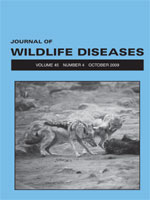Surveillance approaches for wildlife diseases often are based on strategies devised for livestock diseases. Following standard protocols, surveillance sometimes continues after apparent disease elimination. However, in the case of recurrent wildlife diseases that cause decisive morbidity and mortality, efficient and effective surveillance strategies might need to be more dynamic and adaptable to the actual epidemic situation. Here, we evaluated existing surveillance schemes by reanalyzing historic data on three wildlife diseases in Europe: rabies, classical swine fever, and avian influenza. We analyzed the aims of different surveillance activities and the way in which they were performed. Our analyses revealed that static, nonadaptive surveillance was a suboptimal approach. Consequently, we propose and discuss a more adaptive alternative scheme of situation-based surveillance for recurrent wildlife diseases that cause readily recognizable morbidity and mortality.
How to translate text using browser tools
1 October 2009
SITUATION-BASED SURVEILLANCE: ADAPTING INVESTIGATIONS TO ACTUAL EPIDEMIC SITUATIONS
Hans-Hermann Thulke,
Dirk Eisinger,
Conrad Freuling,
Andreas Fröhlich,
Anja Globig,
Volker Grimm,
Thomas Müller,
Thomas Selhorst,
Christoph Staubach,
Stephan Zips

Journal of Wildlife Diseases
Vol. 45 • No. 4
October 2009
Vol. 45 • No. 4
October 2009
avian influenza
classical swine fever
CSF
disease surveillance
monitoring
policy
rabies




